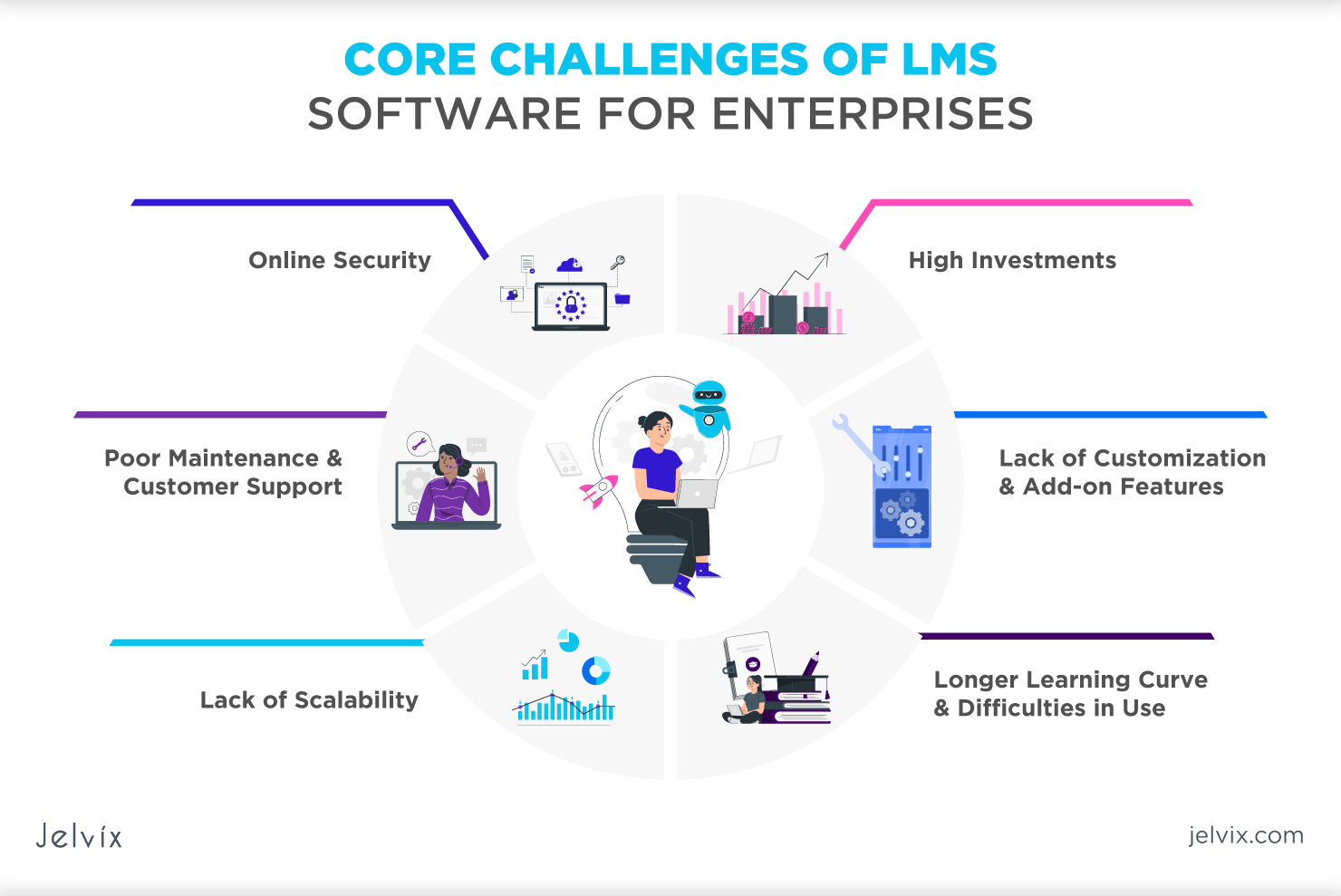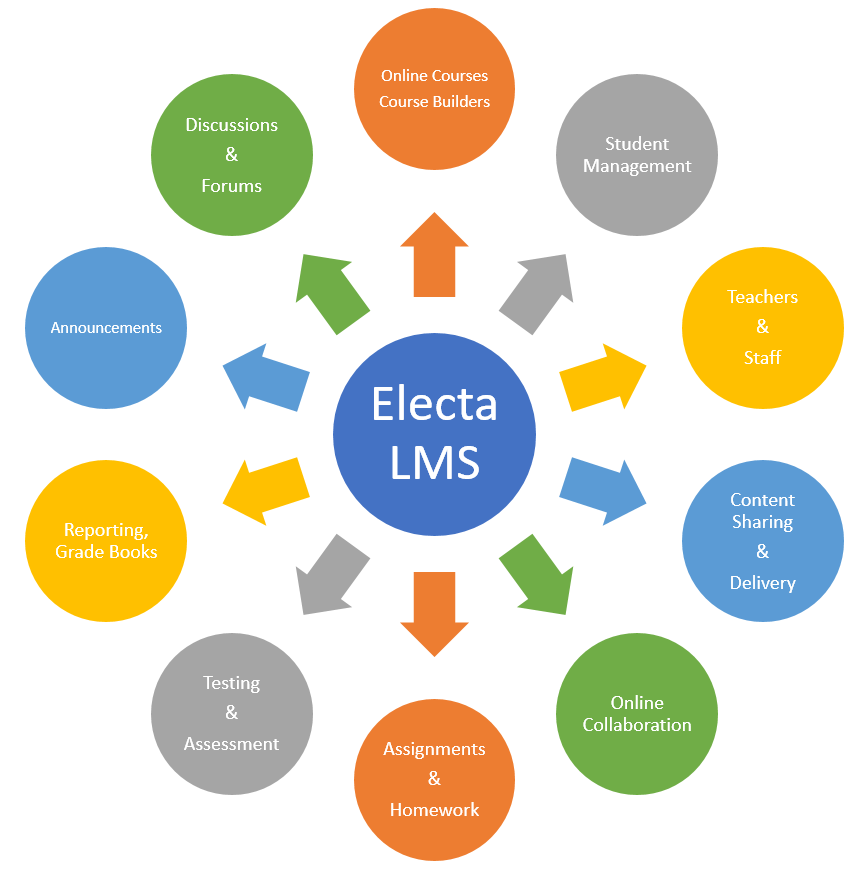Streamline Education And Learning With a Leading Knowing Monitoring System
In the ever-evolving landscape of education, the fostering of a leading Knowing Management System (LMS) offers a critical opportunity to improve procedures and enhance both teaching and discovering experiences. By automating administrative tasks and supplying tailored finding out courses, a reliable LMS not only promotes far better involvement yet likewise cultivates an environment helpful to cooperation and inclusivity.
Advantages of a Learning Management System
A Learning Administration System (LMS) uses numerous advantages that can significantly improve the instructional experience for both students and instructors. Mostly, an LMS helps with streamlined training course administration, enabling teachers to take care of program materials, track learner development, and assess efficiency effectively. This automation minimizes the administrative concern on teachers, enabling them to focus a lot more on teaching and trainee involvement.
In addition, LMS platforms support tailored learning courses, suiting varied understanding styles and rates. This flexibility promotes an extra inclusive setting, enabling learners to accessibility sources that ideal fit their demands. Moreover, the accessibility of an LMS allows trainees to engage with program web content anytime and anywhere, promoting self-directed learning and suiting various schedules.
One more significant benefit is the boosted partnership possibilities an LMS supplies. Discussion forums, group projects, and peer assessments encourage communication among students, boosting their understanding through shared perspectives. Additionally, the data analytics attributes of an LMS make it possible for instructors to gain understandings into learner involvement and performance, educating instructional approaches and interventions.
Secret Attributes to Search For

Next, robust reporting and analytics abilities offer beneficial understandings into learner development and involvement, allowing educators to make data-driven choices. Integration with various other devices, such as material authoring software application and communication platforms, is likewise important for enhancing performance and streamlining process.
Scalability is an additional crucial attribute, guaranteeing that the LMS can expand along with the establishment's needs, suiting an enhancing variety of customers and web content. Furthermore, mobile compatibility is important in today's digital landscape, allowing learners to access academic materials on numerous devices.
Finally, strong protection measures need to be in place to shield sensitive details and keep conformity with educational policies. By prioritizing these crucial features, companies can pick an LMS that sustains reliable training and finding out end results, inevitably boosting the educational experience for all stakeholders involved.

Enhancing Pupil Involvement
Trainee engagement is a vital aspect in the success of any instructional program, as it directly influences learning end results and retention prices. A durable Knowing Management System (LMS) can play a pivotal role in enhancing trainee interaction via numerous innovative attributes.

Moreover, individualized learning courses permit students to proceed at their own speed, accommodating individual discovering designs and preferences. This flexibility not only promotes a feeling of ownership over their discovering trip but likewise maintains students invested and encouraged.
In addition, real-time feedback systems enable instructors to keep track of student efficiency and provide timely support, additional boosting the finding out experience.
Implementation Techniques for Establishments
Effective implementation of a Knowing Administration System (LMS) needs establishments to take on a strategic method that lines up innovation with academic objectives. To attain this, establishments need to start by performing a comprehensive needs evaluation to identify specific needs, making certain that the LMS will properly deal with difficulties dealt with in mentor and knowing.
Next, engaging stakeholders-- faculty, administrators, and students-- is essential for fostering a society of cooperation and assistance. Training sessions should be organized to equip users with the essential abilities to take advantage of the LMS efficiently. Additionally, institutions need to designate adequate resources, consisting of time and budget plan, to help with a smooth transition and recurring maintenance.
Additionally, creating a phased rollout strategy can assist mitigate possible interruptions. Institutions can begin with pilot programs to evaluate functionality and collect comments before major implementation. Continual examination and more information adjustment of the LMS based upon user experience will certainly even more enhance its efficiency.
Lastly, it is vital to interact a clear vision of how the LMS sustains pedagogical techniques, thus motivating buy-in from all parties entailed. By following these methods, organizations can make certain a successful LMS execution that ultimately improves the educational experience.
Determining Success and End Results
Measuring the success and results of a Learning Management System (LMS) is necessary for establishing its influence on mentor and discovering. This procedure entails the collection and evaluation of qualitative and quantitative information to assess the effectiveness of the LMS in achieving educational goals. Key performance signs (KPIs) such as trainee involvement rates, course completion prices, and analysis ratings provide crucial insights right into customer communication and finding out end results.
Moreover, studies and responses devices can record the experiences of both trainees and teachers, providing important point of views on usability, content relevance, and overall fulfillment. By triangulating these data sources, institutions can recognize toughness and locations for enhancement within the LMS framework.
In addition, straightening LMS metrics with institutional purposes enhances accountability and sustains strategic preparation (LMS SG). For example, tracking retention rates and post-course Canvas Singapore performance can notify curriculum changes and resource appropriation. Ultimately, an organized technique to measuring success and end results not only ensures continuous improvement of the LMS yet likewise cultivates a society of data-driven decision-making. This commitment to evaluation empowers instructional establishments to improve their training methods and optimize student experiences effectively.
Verdict
The combination of a leading Learning Administration System (LMS) dramatically enhances educational experiences by automating management tasks and supplying customized understanding opportunities. By promoting partnership and inclusivity, a reliable LMS not only improves pupil involvement but likewise drives much better understanding outcomes. Institutions must prioritize the option and implementation of an LMS that straightens with their goals, making sure durable analytics and interactive material are made use of to gauge success and constantly boost the educational environment.
A Learning Administration System (LMS) provides various benefits that can considerably boost the instructional experience for both learners and instructors.Additionally, LMS platforms support tailored knowing courses, fitting varied understanding designs and paces.Measuring the success and outcomes of a Discovering Administration System (LMS) is vital for establishing its influence on teaching and learning.The assimilation of a leading Understanding Monitoring System (LMS) significantly enhances academic experiences by automating administrative tasks and offering individualized discovering opportunities. By fostering cooperation and inclusivity, an effective LMS not just enhances student involvement however likewise drives better understanding outcomes.
Comments on “Learning Management System Singapore: A Comprehensive Overview for Companies and Educators”